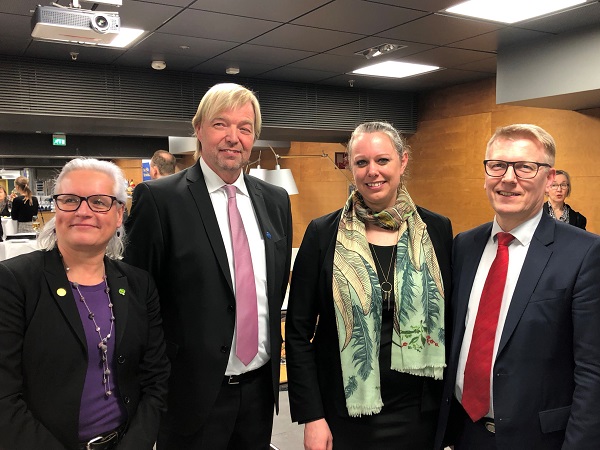 (L-R): Gunvor Ericson, Swedish Secretary of State for the Environment; Björn Hansen, Director of ECHA; Minister Carole Dieschbourg; Kimmo Tiilikainen, Finnish Minister for the Environment, Energy and Housing;
Credit: MECDD
(L-R): Gunvor Ericson, Swedish Secretary of State for the Environment; Björn Hansen, Director of ECHA; Minister Carole Dieschbourg; Kimmo Tiilikainen, Finnish Minister for the Environment, Energy and Housing;
Credit: MECDD
Together with other Ministers and Secretaries of State of the nine European countries who attended, they discussed:
• how cities and regions can advance the circular economy,
• and, how the textile sector can develop circular economy solutions.
The purpose of the meeting was to exchange and develop important common ideas and initiatives for future circular economy policies in the European Union as well as at national level.
During their trip to Finland, guests also visited the European Chemicals Agency (ECHA) to discuss the role of the chemicals management system in promoting circularity. Improving data on the chemical composition of our consumer products and the ability to track chemicals in waste and material streams is essential to promote circularity.








